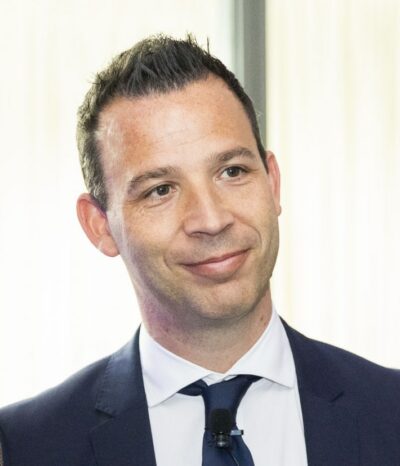Harrison Ford, the fastest-growing motorsport in the world, and coral systems – Climate Week is where compelling people and topics intersect through conversations across courage, commitment and capital.
Against the backdrop of the United Nations General Assembly (UNGA), Climate Week NYC brought together more than 900 events tied to this year’s theme, “Power On”. However, the dialogue and atmosphere gave weight to a shared resolve, as participants came ready, not just to power on, but to power ahead.
Conversations were less about emphasizing the prospects of “what’s new”, switching gears to lean further and deeper into what we already know, and what’s needed to accelerate what can work. No hooks on the benefits of veganism, very few references to the hottest days on earth. Instead, people were focused on practicality over ideals, and solutions over challenges. As environmentalist and lawyer, Carol Browner, stated, “It’s no longer morality. It’s now materiality.”
A spotlight on renewable energy
Which is precisely why so much of Climate Week’s focus centered on renewable energy. Clean energy has the ability to power our lives without air pollution or greenhouse gas emissions. And it has economic promise, providing opportunity for geopolitical security and independence. Consider that the price of solar power has declined by 80% since 2010, and that in 2024, solar photovoltaic and onshore wind projects were generally 40% to 50% cheaper, respectively, than fossil fuel alternatives.
At the same time, global energy demand grew 2% last year, and clean energy sources still accounted for less than 15% of global energy supply, according to the Energy Institute. And while renewables led growth across all other energy sources in 2024, growing its proportion within the global supply mix depends on keeping costs at levels that outperform those of fossil fuels.
At Climate Week, the private sector discussed solutions through the lens of climate capitalism: metrics that measure the performance of energy supply funds, the disparity between sustainable equity and credit funds, as well as the correlation between clean energy and financial returns. Across the board, the clean energy transition is seen as a strong long-term bet.
But who is waiting for the long-term?
Companies want to put their capital to useful work. Investors want timely returns. Governments want economic vitality. And we all want to see a track today that is set firmly toward a healthy future for people and our planet.
From AI-bolstered sustainability to green investments
Beyond energy, conversations were rooted in drawing out the catalysts that will help accelerate solutions.
Expectedly, the opportunities of AI were front and center, for the efficiency it can bring to access and analyze knowledge and the pace it can bring to advance climate action. From automation in carbon accounting reporting and expanding supply chain data, to predictive modeling for devastating weather events, AI in sustainability is demonstrating a capacity that extends from saving costs to saving lives.
Discussions around sustainable investments centered on grounded solutions and accelerating outcomes. While previous years hyped the potential of carbon capture and emerging climate technologies, this year focused more pragmatically on how to secure necessary funding and sufficiently scale.
And of course, Climate Week focused on the imperative to increase the quality of health and resilience of people.
We know environmental changes do not impact people and communities equally, and the need for education, infrastructure, and technology are essential components to building resilience. Encouragingly, conversations also spoke to increasing life expectancy and the concept of evolving “healthspan” alongside “lifespan”, ensuring quality of life comes with longevity. Without question, the health of humanity will be an increasing catalyst for protecting the health of our planet.
Technology inspiring climate solutions
We at Liberty Global partnered with Formula E to host discussions on how sports, technology, and climate action can drive meaningful change. Formula E, of which we own a majority stake, is the world’s most sustainable racing series, paving the way for innovation and EV adoption beyond the racetrack. We were honored to share the stage with Jeff Dodds and Julia Pallé of Formula E, as well as Taylor Francis of Watershed.
This year, Climate Week’s powerful conversations on scaling solutions, accelerating innovation, and working together inspires us to power ahead toward a healthier, more sustainable future.








